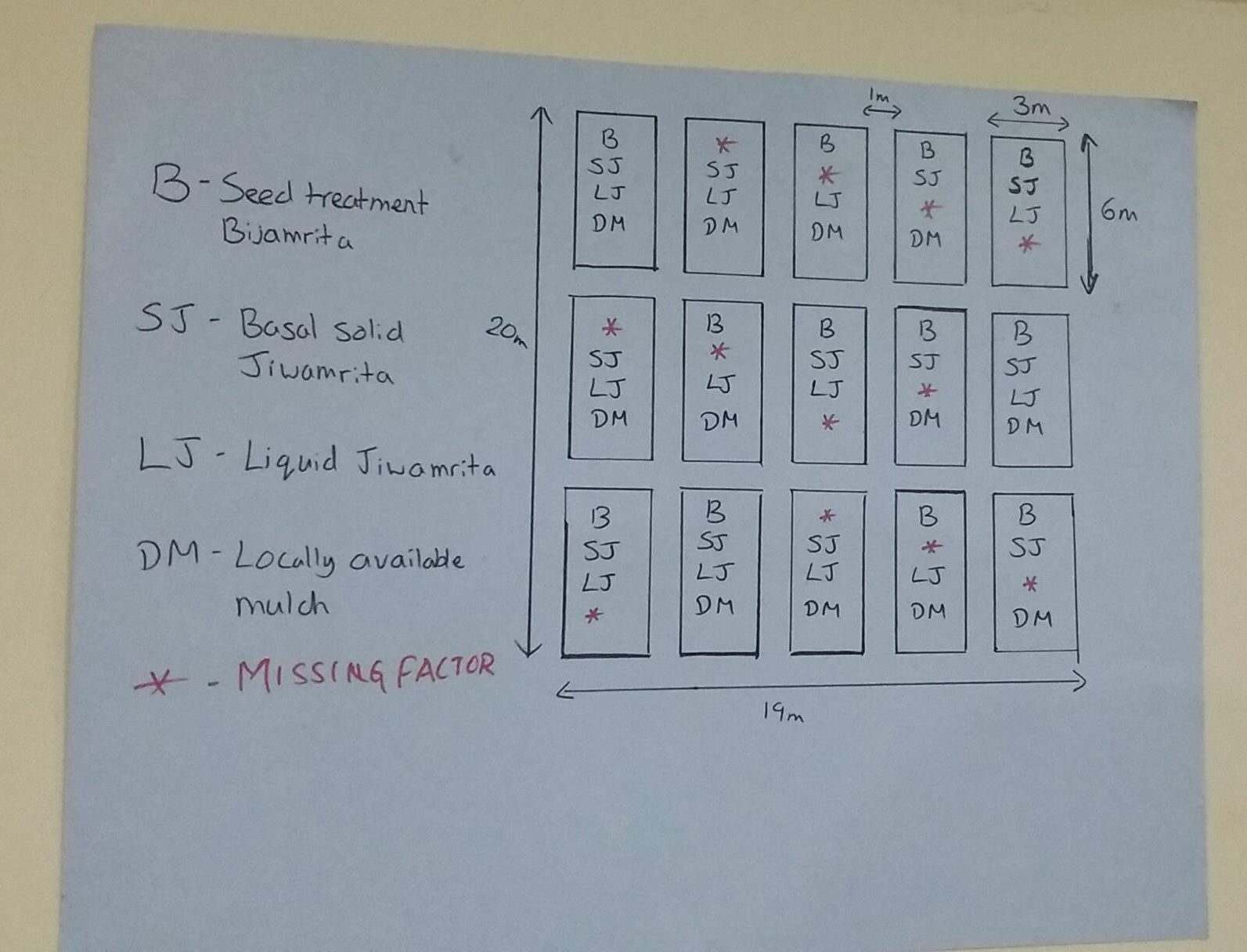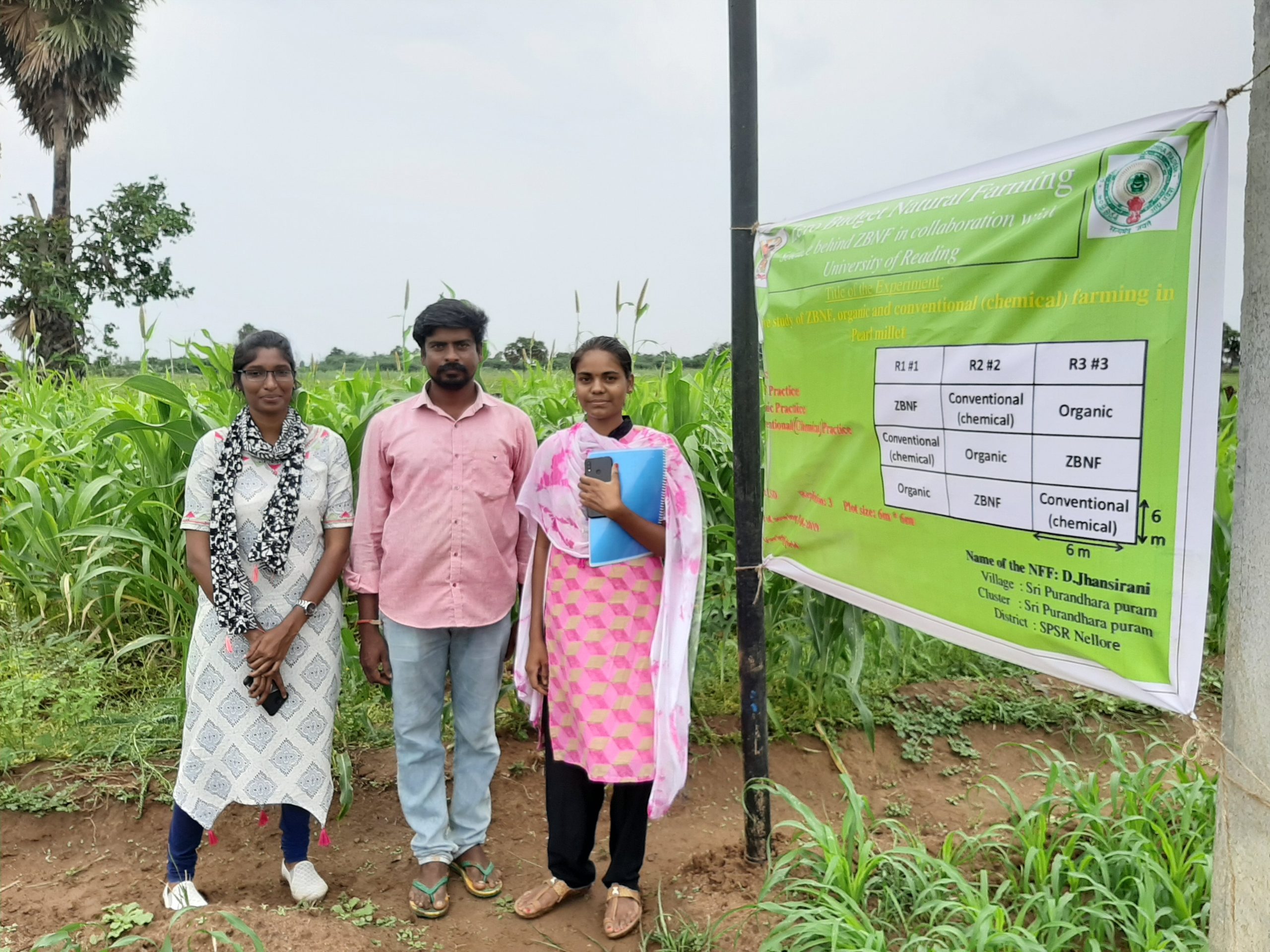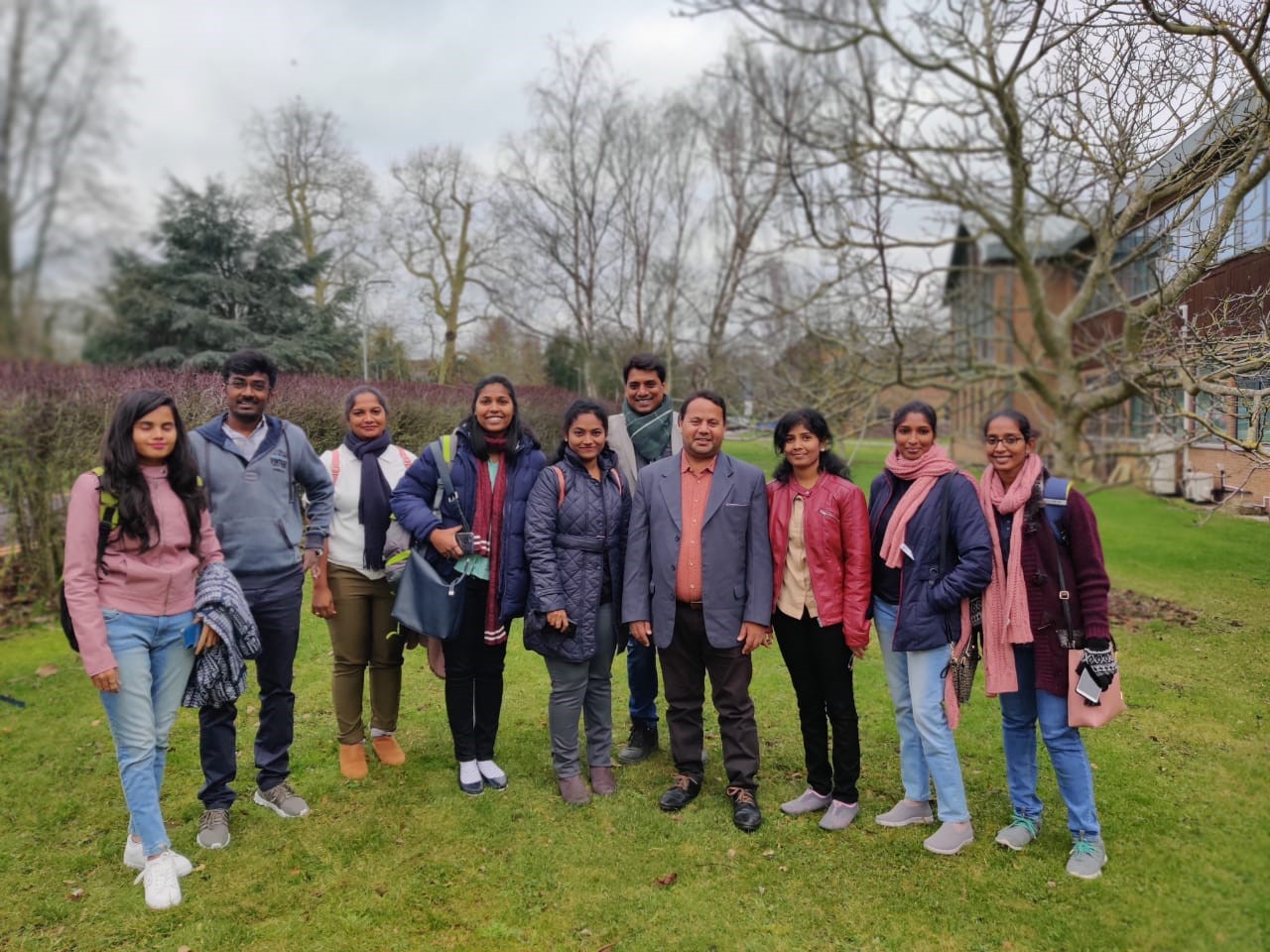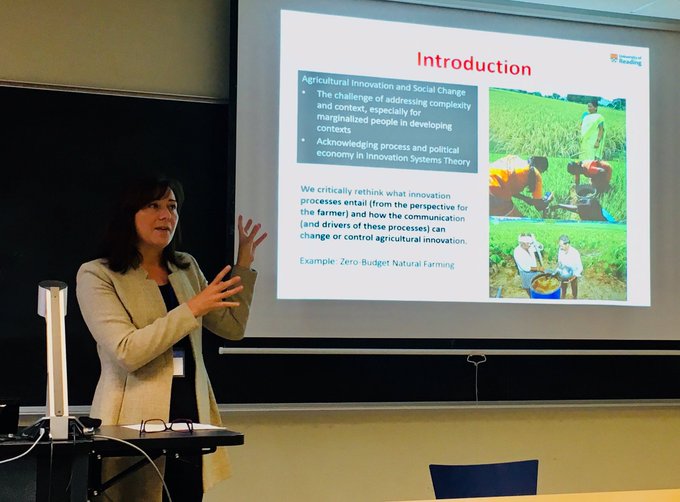CO-DESIGN
All experiments have been co-designed by partners in India and the University of Reading. A series of stakeholder engagement events were designed to facilitate a co-learning process around identifying research needs to evaluate the performance of ZBNF. Twenty stakeholders were brought together in two workshops in Andhra Pradesh, and a subgroup of ten of them met on a third occasion. Their occupations ranged from researchers (national and international), government representatives (policy), agricultural extension officers (national and international), a philanthropic donor (financial support) and farmers (practical insights). The engagement processes included participatory exercises to identify research questions, presentations on ZBNF activities, brainstorming to identify research gaps, field visits, and discussions on scientific methods and protocols.
TRAINING
All on the ground research activities are conducted by local personnel including Research Coordinators, or RCs, (technical staff with master’s degrees in agricultural, environmental science, microbiology, or related discipline), and Natural Farming Fellows, or NFFs (graduates with bachelor degrees in an agricultural related subject, usually from agricultural college). A number of capacity building and training activities have been, and will continue to be, conducted within the team. Training topics have included experimental design, in field research techniques, data visualisation and analysis. Members of local staff have also presented on ZBNF techniques to audiences in the University of Reading, building UoR knowledge of the the practise and giving staff opportunity to present to a wider audience.
COMMUNITY INVOLVEMENT
Field experiments being conducted are open for members of the community to visit and ask questions about, and comment on, the activities taking place. All experiments were publicised within the local community and information boards were displayed. Interested parties were also able to watch project personnel while they conducted research on the site.
VISITS AND EXCHANGES
University of Reading staff (when COVID-19 restrictions allow) visit Andhra Pradesh regularly for training, co-design, analysis and feedback activities. In addition RySS personnel have visited the University of Reading for additional training and collaboration.
CONFERENCES AND PRESENTATIONS
Project staff have also had the opportunity to present our work at international conferences. Conferences have included (but not limited to) the Sustainability & Development Conference, the International Symposium on Climate-Resilient Agri-Environmental Systems (IS-CRAES), the World Congress of Soil Science and the Global Symposium on Soils for Nutrition.
